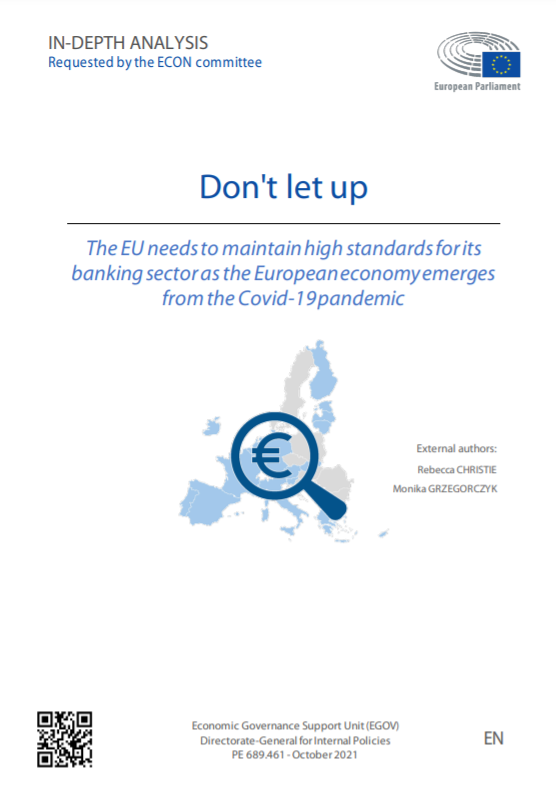Policy Contribution
What impact does the ECB’s quantitative easing policy have on bank profitability?
This Policy Contribution shows that the effect of the ECB’s QE programme on bank profitability has not yet had a dramatically negative effect on bank operations.
This policy contribution was prepared for the Committee on Economic and Monetary Affairs of the European Parliament (ECON) as an input for the Monetary Dialogue of 28 November 2016 between ECON and the European Central Bank. Copyright remains with the European Parliament at all times.
Quantitative easing (QE) affects banks’ profitability in three main ways.
- First, as QE drives up bond prices, banks holding such bonds see their balance sheets strengthened.
- Second, QE reduces long-term yields and thereby reduces term spreads. With this, the lending-deposit ratio spread falls, making it harder for banks to generate net interest income on new loans.
- Last, QE improves the economic outlook, which should help banks exposed to the economy find new lending opportunities and should reduce problems with non-performing loans. The effects of QE on bank profitability are therefore not one directional. If anything, the immediate effect should be positive.
Banks themselves have been quite negative about the impact of QE on their net interest income, but they have also acknowledged its positive impact on capital gains (ECB Bank Lending Survey).
Lending-deposit spreads for new lending have fallen significantly. Looking at actual bank profits, net interest income has been stable. Moreover, bank profitability has increased mostly as a result of efforts to clean balance sheets of impaired assets (at least until the end of 2015). This is consistent with a reduction in non-performing loans (NPLs), particularly in countries where NPL levels were abnormally high.
Moreover, we show that bank profitability in some countries has been a concern for many years now, starting well before the QE programme. The main drivers of low profitability have been non-performing loans, legal risks and other problems unrelated to net interest income, which has remained fairly stable.
Overall, the authors cannot yet see any major bank profitability issue arising out of the ECB’s QE programme.
Erratum: Figure A1 in the appendix was wrongly calculated and is now corrected. Corresponding text on the first page of the paper is also amended.





















